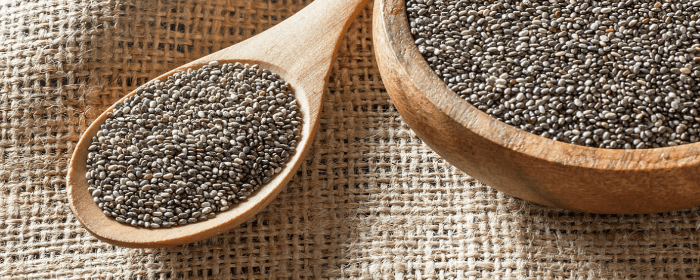
by admin | Dec 22, 2021 | Health Awareness
Daily life can be incredibly hectic for some. Between work-related responsibilities, personal goals, and social commitments, it can be easy to forget something important. This is because your attention span and short-term memory may be overstretched.
How can you remedy this common problem? Various neuroscience research suggests that you can increase your short-term memory by implementing one of three simple strategies, which we have outlined below.
Speak Out Loud
When you really need to remember something, try speaking out loud. Repeat the information that you need to retain a few times. If you are in a public place and don’t want to draw too much attention to yourself, simply mouth the words silently to yourself. Both options can help the information stand out from all the other stimuli you are encountering to remember key details.
Focus on the Event for 40 Seconds
Another great way to boost your short-term memory is to actively focus on an event or piece of information for 40 seconds. You should rehearse or replay the interaction in your mind.
Visualize the exchange right down to each key detail that you need to remember. This will help you remember the core aspects of the event and may even allow you to convert the information to your long-term memory.
Use the Power of Prediction
In addition to the strategies outlined above, you can also increase your chances of remembering something by leveraging the power of prediction. In a 2011 study included in the Canadian Journal of Experimental Psychology, researchers found a strong correlation between asking yourself if you will remember something and your ability to recall the information.
This tactic is beneficial for remembering to perform a pre-planned action, such as calling a family member on their birthday.
Overcoming More Serious Memory Issues
Are you concerned that a serious neurodegenerative condition is causing your forgetfulness? Have you or a loved one recently been diagnosed with an ailment such as Alzheimer’s Disease, Parkinson’s, or suffered a stroke?
If so, then you may benefit from regenerative medicine, also known as stem cell therapy. This alternative option has the potential to slow the progression of cognitive conditions and may even improve short-term memory.

by admin | Dec 15, 2021 | Health Awareness
You may have heard about chia seeds being a “superfood,” but dismissed the idea as one more food fad that will soon disappear. Chia seeds have been an important source of nutrition for indigenous populations for hundreds of years.
Today, chia is considered to be a valuable ancient grain that is enjoying a comeback due to its high levels of nutrition.
What’s in a Chia Seed?
It’s hard to believe that something so small could be packed with so much nutrition, but it’s true. While you may still need high-quality supplements to provide all of the vitamins and minerals your body needs daily, eating a serving of chia seeds will help you meet your goals of a healthier diet.
One tablespoon of chia seeds provides the following:
- 69 calories
- 2 grams of protein
- 5 grams of fat
- 6 grams of carbs
- 5 grams of fiber
- 2 milligrams phosphorous (about 11% of recommended daily value for an adult or DV)
- 7 milligrams calcium (8% DV)
- 8 mg potassium (1%DV)
- 5 IU vitamin A (1% DV)
- 2 mg vitamin C (1% DV)
- 1 mg vitamin E (1% DV)
In addition to being nutrient-rich, chia seeds are a good source of important omega-3 fatty acids and important antioxidants. If that’s not enough, the fiber contained in chia seeds supports gut health, and a healthy gut leads to an improved immune system.
Some studies suggest that including chia seeds in a diet may offer benefits for those who are managing high blood pressure, Type 2 diabetes, and depression.
How to Eat Chia Seeds
Including chia seeds as part of your well-balanced diet is easy. They don’t have to be soaked or ground like some other ancient grains. Add them to baked goods, or smoothies or eat a crunchy spoonful raw right out of the bag. If your diet has been low in fiber, make sure to drink plenty of water and consume no more than the recommended 2 tablespoons of chia a day to prevent digestive upsets. Always consult with your primary care provider when adding new supplements to your diet regimen.

by Stemedix | Dec 6, 2021 | Health Awareness, Multiple Sclerosis
MS, or multiple sclerosis, is a chronic condition characterized by the immune system attacking the body’s myelin. Myelin is the substance that coats the body’s nerves, so patients with MS often face issues with their nervous system’s ability to communicate. Patients may experience pain, movement issues, or trouble thinking clearly. There are plenty of medical treatment options available, but these options can be costly, inconvenient, or cause troubling side effects. Patients who are wondering what natural treatments are available for Multiple Sclerosis, may have difficulty finding viable information. With this in mind, here are two adaptable natural treatment methods that may show some positive results when incorporated into a comprehensive treatment plan for MS.
Diet
The evidence to support dietary changes is shaky at best. There is no evidence to show that one specific or specialized diet can treat MS symptoms. With that being said, however, there is plenty of scientific data showing that in theory, MS patients adhering to a generally healthy diet may face fewer symptoms.
MS patients can potentially experience some relief by adding these kinds of foods to their diets:
- Omega-3 fatty acids, which are found in fish like salmon and mackerel, as well as some nuts and seeds
- Fruits
- Vegetables
- Whole grains
Patients are advised to cut down on or eliminate high-fat dairy, salt, and saturated fats wherever they can.
Dietary Supplements
Dietary supplements are distinct from herbal supplements, as dietary supplements are meant to replace or bolster naturally-occurring vitamins and minerals needed for regular body function.
Though dietary supplements should not be seen as a cure or treatment for MS, certain vitamin deficits can increase the severity of MS symptoms and flare-ups.
Here are a few dietary supplements that may help to mitigate MS symptoms:
While calcium is not directly related to MS symptoms, it can reduce the risks of osteoporosis, which some MS patients are at a high risk of developing.
Are Natural Treatments Enough?
MS is a complex condition that may require more conventional treatment intervention if the condition is progressing or to help manage symptoms. The options presented here are the easiest and most accessible for MS patients to undertake on their own.
Many patients are also discovering an alternative option through stem cell therapy to additionally help manage the condition. Stem cells have regenerative and anti-inflammatory properties to help damaged tissues and boost the body’s natural healing mechanism.
If you or your loved ones are interested in adopting natural treatments into your MS treatment plan, it is helpful to research and consult if these are viable options to consider. If you are interested in learning more about what natural treatments are available for Multiple Sclerosis, contact a care coordinator today!

by admin | Dec 1, 2021 | Health Awareness
There are certain foods you need to eat to have a healthy and balanced body: milk for strong bones, protein for muscles, and fruits and veggies for overall health. But did you know there are certain foods you can eat specifically to help your bladder health?
Here are a few urologist-recommended food and drink options that can help to improve your bladder health.
Water
Water has always been (and will always be) the best drink you can give your body. Water helps to stimulate urination, which flushes bacteria out of the body and prevents infection.
Make sure you’re getting at least the daily recommended amount of water in your diet.
Fruits and Vegetables with High Water Content
If you have trouble getting through the recommended amount of water, adding certain fruits and vegetables to your plate can help. These foods tend to have higher water content than other kinds of food, so increasing the amount of fruits and veggies in your diet will help you introduce more water to your body.
It’s important to note that some acids from the fruit can end up irritating your bladder, so make sure to choose fruits and vegetables that aren’t too acidic!
Fiber-Rich Foods
Fiber is known to be a valuable dietary addition for gut health, which makes it ideal for bladder health, as well. Potatoes, whole grains, and legumes are a few foods that are high in fiber.
Cranberries and Cranberry Juice
If you’ve ever had a UTI or other kind of bladder infection, you’ve likely been told to drink a glass of cranberry juice. Cranberries contain an antioxidant called proanthocyanidins, which cut down on bacteria’s ability to hang around the urinary tract.
It’s important to remember a doctor’s visit is the best way to find relief for bladder problems. With that being said, changing your diet can help improve your overall bladder health.

by admin | Nov 24, 2021 | Health Awareness
Have you been diagnosed with leaky gut syndrome? If so, you know the discomfort associated with the condition. Bloating, digestive problems, joint pain, and even difficulty concentrating can all result from intestinal permeability, the cause of leaky gut. Fortunately, some supplements effectively treat leaky gut and manage its symptoms.
L-glutamine
L-glutamine is an amino acid that helps repair the intestinal lining. This immune-supporting and digestion-aiding acid have dietary sources like chicken, fish, beans, cabbage, spinach, and dairy. It’s the most abundant free amino acid in the body.
One study shows that low doses of oral glutamine may improve intestinal permeability, especially after strenuous exercise. It may also help regulate how the intestinal barrier functions during stress.
Collagen Peptides
Collagen proteins are found in almost every tissue throughout the body. Not only are collagen proteins considered to be a building block for healthy skin, hair, and muscle, collagen also plays an essential role in digestive health.
The most easily digestible collagens are collagen peptides, a bioavailable form of the protein. Collagen peptides prevent the destruction of the intestinal lining and provide anti-inflammatory properties to promote gut health.
Zinc
A recent study on zinc claims this supplement can reduce the permeability of the small intestine that’s associated with the leaky gut syndrome and Crohn’s disease.
Researchers studied patients who were given 110 mg of oral zinc sulfate three times a day for eight weeks. During follow-up studies, it was determined that 10 out of 12 patients had normal intestine permeability.
Probiotics
Probiotics are live microorganisms that help to improve your microbiome (healthy gut bacteria). The gut microbiome affects almost every other system in the body, including heart health, immune system, and blood sugar levels, as well as your digestive system. Studies have shown that markers of gut leakage decrease when multi-strain probiotics are used.
Leaky gut syndrome may contribute to autoimmune problems and neuropsychiatric and skin conditions. However, with dietary and lifestyle changes, including the regular use of high-quality supplements, symptoms can not only be managed but the condition can also be improved. Before taking supplements, it’s best to consult with a healthcare practitioner experienced in the care and treatment of leaky gut.

by admin | Nov 17, 2021 | Health Awareness
According to new research, oxidative stress is now emerging as a potential factor in many of the more than 600 neurodegenerative diseases recognized today.
What Is Oxidative Stress?
Your body needs both free radicals and antioxidants. Oxidative stress occurs when there is an imbalance in the number of free radicals and antioxidants in your body. Essentially, it is when you have too many free radicals, which can have adverse effects.
What Are Free Radicals?
Natural metabolic processes create the free radicals in your body. They are molecules with one or more unpaired electrons, which make them reactive. Free radicals quickly react with other molecules and can set off large chains of chemical reactions in your body. They are unstable and can cause damage to cells all over your body and speed up the aging process.
Free radicals are not just found in the human body. You can also find these oxygen-containing molecules in cigarette smoke, fried foods, alcohol, and pesticides.
How Does Oxidative Stress Affect the Body?
Oxidative stress increases inflammation in your body. The increased inflammation causes the release of more free radicals, leading to a vicious cycle that causes chronic inflammation. This chronic inflammation can lead to diseases like diabetes and arthritis. Unchecked oxidative stress may play a role in the development of several different neurodegenerative diseases, as well.
How to Prevent Oxidative Stress
At one point, scientists thought the antioxidants found in food were fit for preventing the effects of oxidative stress. However, recent studies show antioxidants do not provide reliable prevention against neurodegenerative diseases.
You can prevent oxidative stress by making proactive changes to your diet and lifestyle. A healthy, well-balanced diet made up of whole grains and unprocessed foods can go a long way in countering oxidative stress, especially when paired with regular exercise. Abstaining from tobacco products and reducing conventional external stressors can also prevent oxidative stress.
For more health awareness blogs, please visit www.stemedix.com/blog.







 St. Petersburg, Florida
St. Petersburg, Florida
